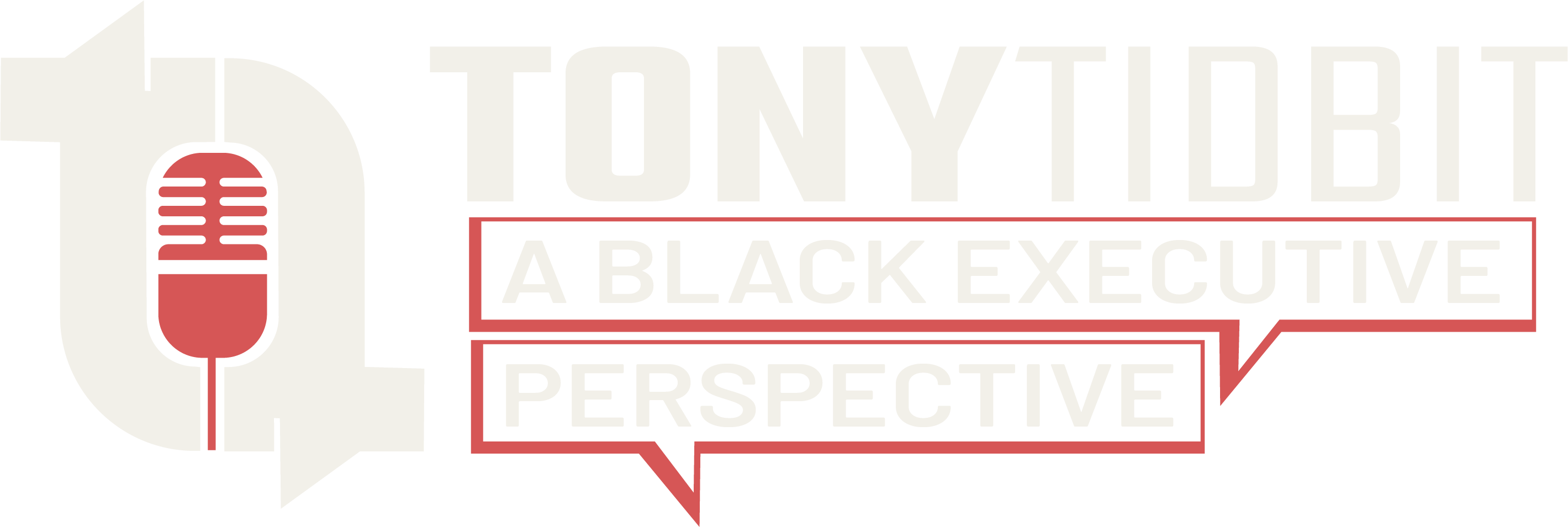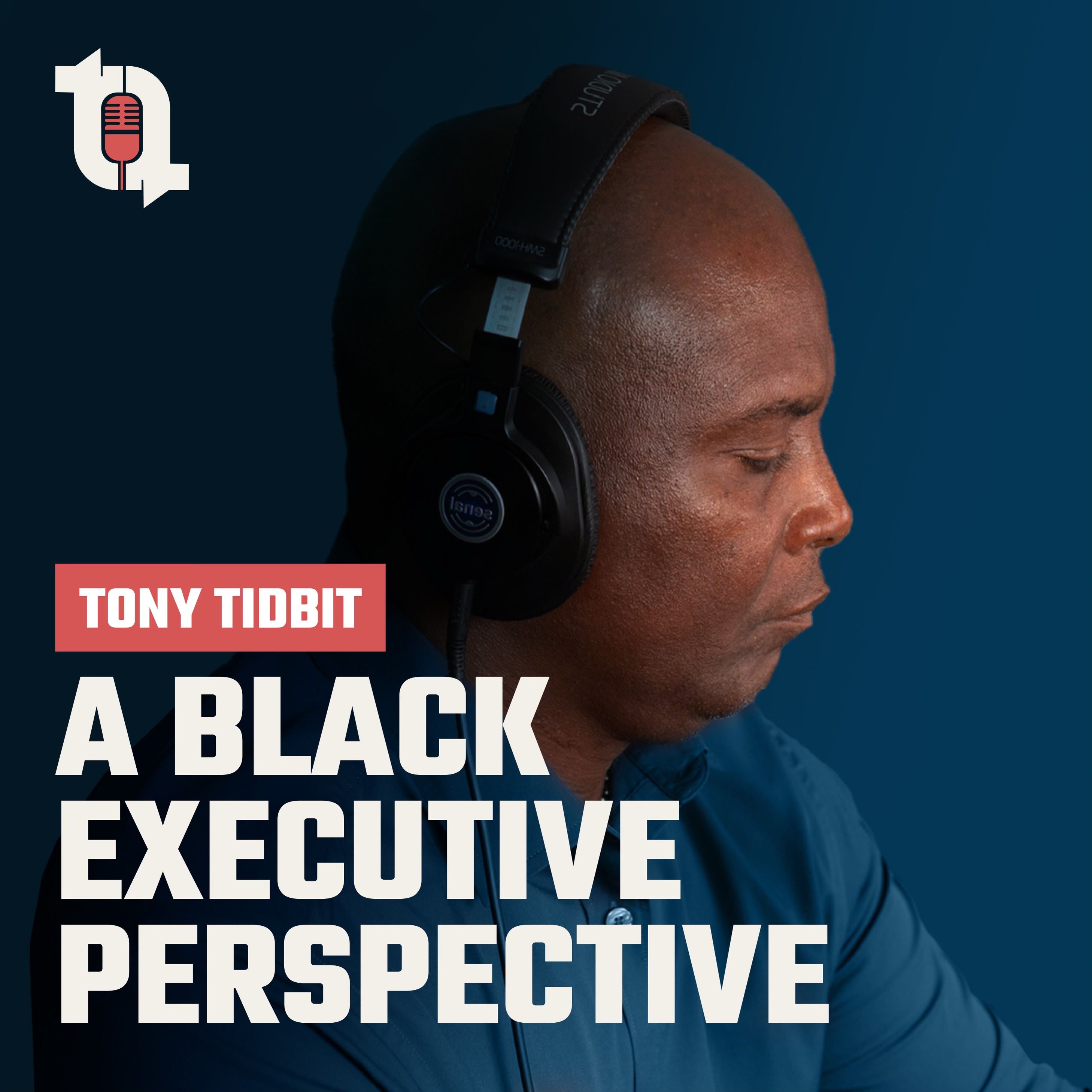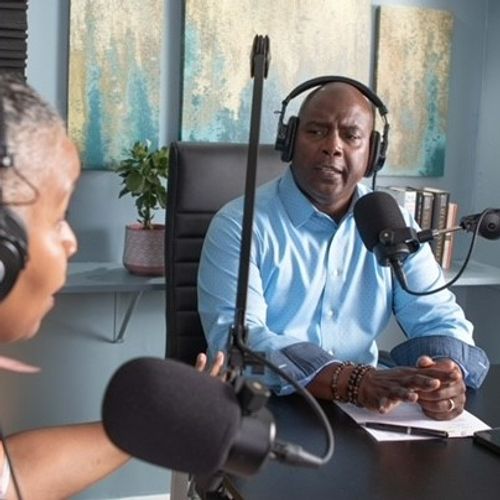Need To Know With Dr. Nsenga Burton-Fearless Fund
Episode Title:
Episode Audio Link: https://podcast.ablackexec.com/episode/Need To Know With Dr. Nsenga Burton-Fearless Fund
Episode Video Link:
In this episode of 'Need to Know with Nsenga' on Black Executive Perspective, Dr.Nsenga Burton discusses the Federal Appeals Court's decision to block the Fearless Fund from issuing grants exclusively to Black women. She highlights the systemic barriers Black women face in entrepreneurship despite their impressive contributions and statistics. Dr. Burton explains the need for specialized support like the Fearless Fund and shares insights on the broader implications of these legal setbacks on marginalized communities striving for equal opportunities in business.
▶︎ In This Episode
- 00:00: Introduction to Need to Know with Dr. Nsenga Burton.
- 00:22: Federal Appeals Court Blocks Fearless Fund.
- 00:51: Statistics on Black Women Entrepreneurs.
- 01:46: Challenges Faced by Black Women Entrepreneurs.
- 03:22: The Role of the Fearless Fund.
- 04:17: Systemic Disparities and the Need for Support.
- 06:33: Personal Reflections and Call to Action.
- 07:28 Conclusion and Next Week.
🔗 Resources
Links and resources mentioned in this episode:
🔔 Listen and Subscribe
Listen to this episode and subscribe for future updates
subscribe to A Black Executive Perspective podcast on
- YouTube Podcasts
- Apple Podcasts
- Spotify Podcasts
- Amazon Music
- Other platforms or by searching "TonyTidbit"
if you like what we're doing and would like to support us, here's some ways you can help us continue the uncomfortable conversations that drive change
- subscribe to our newsletter
- give us up to a 5 star review on Apple Podcasts
- share an episode with a friend, family member or colleague
🗣️ Follow @ablackexec
follow us across social media @aBlackExec
⭐️ Follow @TonyTidbit
follow Tony across social media @TonyTidbit
This episode was produced by TonyTidbit ™ . Copyright © 2024 A BLACK EXECUTIVE PERSPECTIVE LLC. All rights reserved. No part of this podcast may be reproduced without prior written permission. For permissions, email podcast@ablackexec.com .
Transcript
A Black Executive Perspective now presents Need to Know
2
:with the award winning hyphenated Dr.
3
:Nsenga Burton.
4
:Dr.
5
:Burton, what do we need to know?
6
:Dr. Nsenga Burton: Good afternoon.
7
:Welcome to Need to Know with Nsenga.
8
:I am happy to be here today.
9
:I'm unhappy to be talking to
you about this particular topic.
10
:If you've been watching the news, you
have seen that the Federal Appeals
11
:Court has blocked the Fearless Fund
from issuing grants to only Black women.
12
:There has been A movement to
disempower people of color in
13
:general, black women specifically,
and it is, uh, really come to a head.
14
:Uh, the fearless fund was founded to
give black women entrepreneurs a leg up.
15
:Now, you may be looking at the
statistics and the statistics are, uh.
16
:Amazing and we seem like we're doing
black girl magic and all the things right?
17
:So we have black women account
for 42 percent of all women
18
:who opened a business, right?
19
:So we're doing that.
20
:We're outpacing white women and black
men in terms of opening businesses.
21
:We're doing that.
22
:We represent 36 percent
of all black employers.
23
:We're doing that.
24
:Black women entrepreneurs also
have payroll, a large percentage
25
:actually paying people.
26
:Not only paying the money, paying
them taxes, all of the things, um,
27
:so that they can enjoy their lives.
28
:And once they leave or move
on, they can continue to, um,
29
:enjoy the fruits of their labor.
30
:Um, and then you have all of
these things happening compared
31
:to, New businesses, right?
32
:That are being started by others.
33
:10 percent of white women
and 15 percent of white men.
34
:So, if you see the numbers of the
statistics and these statistics, I got
35
:from a study or report from JP Morgan, um,
from:
36
:things are going well, and they are to a
certain extent, but what they don't talk
37
:about or show is the incredible barriers.
38
:And access to entry black women
are up against further the types
39
:of businesses that they're able to
start, or we're able to start often
40
:don't have the same types of revenue.
41
:For example, the average amount of
revenue that a black woman owned business
42
:makes is $24,000 dollars per year.
43
:So, when you don't have access to
capital, when you don't have access,
44
:and we're talking about venture capital.
45
:When you don't have access to money
because of systemic barriers, including
46
:racism, sexism, misogyny, discrimination,
when you're less likely to be approved for
47
:a loan, when you carry more student loan
debt than any other group in the country,
48
:all of these things are happening.
49
:Sometimes you need a leg up.
50
:Um, many black women are going into
entrepreneurship because of, um, they're
51
:tired of corporate America and trying
to be liked or treated with dignity
52
:and respect or not overworked and
undervalued, overworked and underpaid,
53
:um, and, you know, just being made
the villain, so to speak, uh, in
54
:order to support, uh, really poor
practices, uh, and business practices.
55
:So, black women are taking
a chance on themselves and
56
:they're starting businesses.
57
:So, to get back to the fearless fund,
the fearless fund is really, um, one
58
:of many, uh, well, I won't say many,
but one of several, um, that are really
59
:trying to make sure that black women
in general, um, and, and that includes
60
:Afro Latino, that includes African,
that includes Caribbean, what have you,
61
:um, black women are getting a shot.
62
:At being entrepreneurs and being
successful entrepreneurs who can operate
63
:at full capacity, they can have staffs.
64
:So they're not overworking
themselves in their own businesses,
65
:which many of us tend to do.
66
:They can have retirement and
benefits and offer that so
67
:they can attract great talent.
68
:And so, when you get this type of ruling,
and it continues to happen, we saw
69
:it at Harvard in terms of admissions.
70
:We're now seeing it.
71
:They're now telling you.
72
:Uh, in America.
73
:Okay.
74
:So, yeah, you can start a
business, but you can't help
75
:a particular group of people.
76
:Everyone has to have access to
it, even though there are systemic
77
:disparities that suggest there is
a need for this particular fund.
78
:They didn't go out here and say, okay,
let's be a black supremacist and just say,
79
:um, we're only gonna help black women.
80
:They looked at the data
because it's all data driven.
81
:They looked at what is needed in our
communities, black women, 72 percent of
82
:black families are led by black women.
83
:They looked at all of
that information, right?
84
:And all the education that
we're getting, we are the most
85
:educated group in the country.
86
:We are, which is why we
have the most student loans.
87
:Right, because we have the least amount
of income, capital, housing, all of
88
:the things that, you know, other groups
have, uh, in, in wonderful numbers,
89
:particularly people who are white.
90
:They looked at all that data and
they say, how can we help make
91
:a difference in our community?
92
:How can we help impact this community?
93
:Particularly when we are
disenfranchised and left out.
94
:Of these other opportunities, whether
it's at the corporate level, whether
95
:it is as small owned businesses.
96
:I just read an article today where
someone, uh, didn't want to sell
97
:their house to this young woman, 33
year old woman, uh, in California,
98
:cause she was black and said it, you
know, wanted to stop the closing.
99
:These are the things that happen
to black people all the time.
100
:That is part of our existence.
101
:It is part of our experience.
102
:And you know, just because it's
not on NBC all the time doesn't
103
:mean that it's not happening.
104
:So I just wanted to say.
105
:That It's a really sad day when we don't
look at our historically disenfranchised
106
:populations and think about the ways that
we can help those who are most deserving.
107
:And these are people who have gone
to school and educated themselves.
108
:These are people who have, uh, and, and,
and there's entrepreneurs themselves.
109
:These are people who have decided
that they want to use their talent
110
:to uplift the community, right?
111
:You keep talking about, you need
to get jobs, you need to take care
112
:of your own community, you need
to do this, you need to do that.
113
:And so when we try to target, and that's
all it is, it's not giving anybody a
114
:hand out, it's giving somebody a leg up.
115
:When we try to target people to
help make that happen, they were
116
:penalized, demonized, villainized
and further disenfranchised.
117
:So it won't stop.
118
:Um, we will continue to do what we can.
119
:I am the former national executive
director of an, uh, of, uh,
120
:the National Association of
multicultural digital entrepreneurs.
121
:I'm the former Southeast
regional director.
122
:Of a, uh, an HBC
entrepreneurship institute.
123
:So people are still going
to be working hard on it.
124
:We have Congress people who are
working on these initiatives.
125
:Biden administration has rolled out
coins or funding for entrepreneurs.
126
:So there are ways to get to it.
127
:But it's just disappointing that if
you try every single pathway that
128
:is available to you and you are
rejected, even though you are qualified
129
:and you do have the credentials.
130
:That there's still now there's nowhere for
you to go in terms of people who are like,
131
:they understand you understand you, your
community, your culture, and the types
132
:of businesses you're trying to build.
133
:So that's, that's disappointing,
but we won't stop.
134
:We'll keep going.
135
:So this is a need to
know with Nsenga on BEP.
136
:Join us next week.





